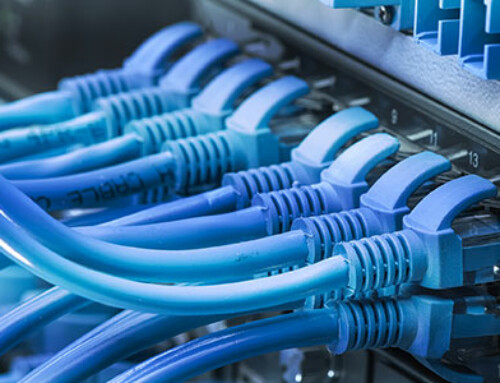Network security is a broad term that refers to the technologies, controls, and policies used to protect corporate data networks, as well as the associated users and systems connected to them. More specifically, network security involves safeguarding a company’s underlying network infrastructure from unauthorized access, misuse, modification, or destruction. Examples of network security measures and strategies include firewalls, access control policies, secure authentication protocols, and network monitoring.
In 2023, network security will be more critical than ever as companies rely on increasingly complex technology infrastructures and interconnected systems. If you haven’t placed much emphasis on network security in the past, now is the time to invest in it.
Why do you need strong network security in 2023?
Implementing a strong network security framework in 2023 is more important than ever for a number of reasons:
1. The threat landscape is constantly evolving
There are various threats to company networks, including malware, phishing scams, and other malicious attacks. Unfortunately, these threats will only become more effective at compromising networks in 2023, and when they do, companies will suffer irreparable damage.
For instance, advanced malware strains are polymorphic, meaning that they change their structure to avoid detection by traditional firewalls and anti-malware software. This makes it difficult to identify malicious network activity and puts companies at risk of a breach or an attack.
A surefire way of dealing with sophisticated threats is through robust network security, consisting of next-generation firewalls, access controls, content filtering, sandboxing detection, and more. By implementing the latest network security measures, companies can stay one step ahead of cybercriminals.
| Related reading: What are the most important network security solutions? |
2. Data breach costs are skyrocketing
One of the consequences of poor network security is a costly data breach. While the financial damages of a data breach were no laughing matter in the past, they’re only getting worse as time goes on. In 2023, the cost of a data breach is projected to reach $5 million, which would be 14% higher than the average in 2022.
Many large corporations would wince at the thought of paying such an enormous sum, but small- and medium-sized businesses are truly at risk of going bankrupt if they experience a data breach. Allocating a large portion of your company’s budget to network security now is therefore the best course of action for controlling overhead costs and crippling financial losses in 2023.
3. Network security ensures compliance
Depending on the industry and region in which you operate, you may need to comply with various data privacy regulations like HIPAA or PCI DSS. The general mandate of these regulations is to implement a security framework that protects the confidentiality, integrity, and availability of sensitive data.
Not only is it possible to be fined for failing to meet these regulations, but noncompliance also puts you at risk of legal action from customers or other stakeholders. Weak network security can be construed as negligence, and you don’t want to be on the receiving end of a lawsuit. To avoid the headaches associated with noncompliance, you need network security solutions like end-to-end encryption, identity and access management, and advanced threat prevention systems.
4. Poor cybersecurity can cause reputational damage
If your network is compromised, the consequences can go beyond financial losses and legal action — you may also incur reputational damage. A solid reputation is everything in today’s digital world, and it can take years to rebuild one after a security breach. The damage can be even worse in 2023, considering the ubiquity of social media and the ease with which rumors can spread online.
Setting up strong network security is therefore a must if you want to demonstrate to your customers that their data is safe in your hands. Things like continuous vulnerability assessments, secure authentication protocols, and data loss prevention policies can ward off security threats and protect your reputation in the process.
5. An efficient network is vital for business operations
With the proliferation of cloud computing and remote working, more businesses are relying on a smooth-running network for their daily operations. However, weak security can completely undermine your company’s network performance. For instance, a distributed denial-of-service attack can take down your website and disrupt access to critical applications, resulting in a significant drop in productivity and sales. To minimize downtime, you need a network security system that can detect and address potential threats before they disrupt your business.
What are the elements of an effective network security system?
There’s no denying that network security is essential, but many businesses may not know what an effective one looks like. Generally speaking, an effective network security system includes three core elements:
Authentication
Authentication protocols are used to verify the identity of users who are attempting to access a network. Username and passwords are the most common forms of authentication, but most networks today incorporate multifactor authentication, a security process that requires users to submit additional information like one-time passwords or biometric scans.
Authorization
Once users are authenticated, you need to control which applications and services they can access within the network. Authorization is the process of giving users permission to access the resources they require for work. This is done by granting users different levels of privileges based on their role in the organization, device type, location, and other custom rules.
Accounting
Accounting, also known as auditing, is the process of tracking user activities and system usage. It involves using security information and event management (SIEM) software to collect and analyze log data from multiple sources such as your firewalls, applications, and network devices. You can use SIEM to monitor login attempts and duration, download and upload activity, IP addresses, and network traffic behavior to investigate potential threats. With constant network monitoring, you’ll be able to detect and prevent security threats in real time.
A secure and resilient network is a must for businesses in 2023. Without it, your business can suffer from financial losses, legal action, reputational damage, and more. If you want a network that can withstand the threats of tomorrow, call Dynamic Solutions Group now. We provide a complete suite of network security solutions to defend your company’s most precious assets.






